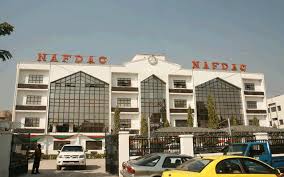The Rainbow
A Herbal candidate for the treatment of the dreadful coronavirus by Pax Herbal Clinic and Research Laboratories, Ewu in Edo State, has got the approval of the National Agency for Food, Drug Administration and Control, the Guardian has reported.
The newspaper cited the director of the Edo State based herbal clinic, Rev. Fr. Anslem Adodo, as saying that NAFDAC “has finally approved their herbal remedy for the treatment of symptoms associated with COVID-19.”
According to the report, citing an internal memo that went viral on social media, Adodo said: “After a series of screening, spanning eight weeks, NAFDAC has today approved our Paxherbal COVID-19 herbal drug, Paxherbal Cugzin, for public use.
“It is the first to be so approved and presently the only one. The drug is specifically for treating the symptoms associated with the coronavirus.”
The report added that NAFDAC had earlier given tacit approval for the drug to be used, even though the body was yet to make that approval official; hence the initial packs of the herbal remedy bore the disclaimer, “these claims have not yet been verified by NAFDAC.”
But with that hurdle crossed, Paxherbal Cugzin now has the NAFDAC number: A7-4358L, the Guardian further reported.
The Presidential Task Force on COVID-19 had in late May announced that three out of the numerous claims of COVID-19 herbal cures had been validated and forwarded to relevant authorities for validation.
The Chairman of the PTF, Boss Mustapha, who made the revelation during one of the taskforces briefings in Abuja, said that the Central Bank of Nigeria had indicated interest to support research efforts at finding a cure to COVID-19 in the country.
The Federal Ministry of Health had screened about herbal candidates from about 19 local firms for the production of herbal drugs that can possibly treat or cure COVID-19, which made claims ranging from the outright cure for COVID-19 to the treatment of the symptoms.
Nigeria had in May received a herbal drug COVID organics from Madagascar, which the country’s authorities touted as a cure of the rampaging virus infections.
Last month, Nigeria’s health minister, Osagie Ehanire, said that preliminary tests on the drug by the Nigerian health authorities showed that the drug had ingredients of a malaria drug. He promised that further tests would be conducted on it, but more than two months after Nigeria received the gift nothing more has been heard about it.














